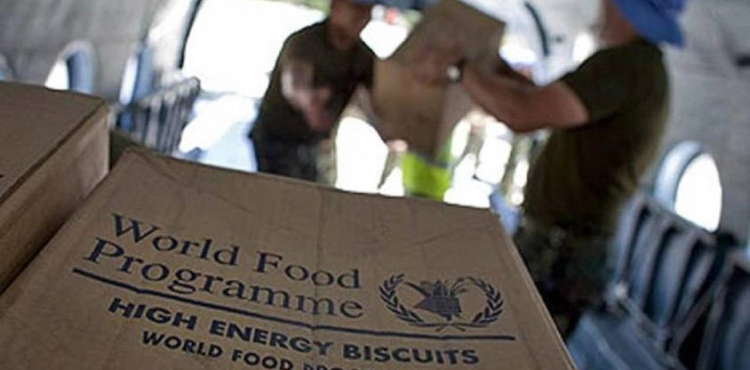The World Food Program, which won the Nobel Peace Prize on Friday, 2020, is a powerful organization that has been active for nearly six decades in areas experiencing natural disasters or armed conflicts to provide emergency aid to a population destitute.
What follows is an overview of the program, which is a specialized agency of the United Nations based in Rome, in five points.
The World Food Program was established in 1962 at the request of US President Dwight Eisenhower, to formally equip the United Nations with a food arm. An employee in the program, who asked not to be identified, explains that the program was in fact founded "based on the will of the US government to support its national agricultural sector by purchasing surplus agricultural production from the United States and distributing it in developing countries."
Months after its founding, an earthquake struck northern Iran, killing 12,000 people. In 1963, the program’s first project devoted to nutrition in schools saw the light, and in 1965 the program became fully integrated with the United Nations.
At least 1.1 million women and children under five receive WFP food support every month, as is the case in Syria. WFP is also working in the Democratic Republic of the Congo, the Nigerian states attacked by Boko Haram, and in Burkina Faso, Mali, Niger and South Sudan.
The World Food Program says on its official website that "the emergency intervention in Yemen is our largest operation in the world," stressing that about ten million Yemenis "suffer from severe food insecurity."
The program sends the equivalent of 5,600 trucks, 30 ships and about 100 aircraft daily, mostly through non-governmental organizations and private transport companies. In some remote areas, the program intends to transport supplies on the back of the animal.
Since its inception more than sixty years ago, the program has developed ways of moving it. While most of its early operations were based on transporting supplies from one place to another, the program now works according to food and educational programs and distributes the funds it collected to use it in the best way, granting purchase vouchers and cash sums.
It also plays an essential role in educating the population on safe nutrition. The same employee explains, "In the past we used to give priority to calories, but we are now focusing on the special needs of pregnant women and breastfeeding women, for example. This goes through local awareness. Children who suffer from malnutrition are due to lack of food as well as prevention issues such as hand washing." .. "
The program focuses on emergency aid as well as reconstruction and development aid. It does two-thirds of its work in conflict areas. The same employee asserts, "The situation becomes more complicated. There is sometimes a lack of clarity between the role of the military and humanitarian workers in the Sahel region, for example, where NGOs are forced to work under a military escort."
The program works closely with two other United Nations agencies, the Food and Agriculture Organization (FAO) and the International Fund for Agricultural Development.
The program has 17,000 employees and is fully funded through donations, the majority of which are provided by member states. He received eight billion dollars in 2019.
Without the World Food Program, the UN staffer says, "donors would have to go through a large group of NGOs, which makes coordination very difficult."
More than 821 million people in the world suffer from chronic hunger and another 135 million from starvation or very severe nutritional deficiencies, and 130 million people may join them due to the Covid-19 pandemic.
The number of people suffering from severe food insecurity has increased by 70% in the last four years, and the economic crisis caused by the health crisis may lead to a "pandemic of hunger", as the program warns, especially in South America, central and western southern Africa. "We have an urgent need for additional support from donors who are under pressure due to the impact of the pandemic in their countries," said Thomas Ferry, a spokesman for the program in Geneva.












